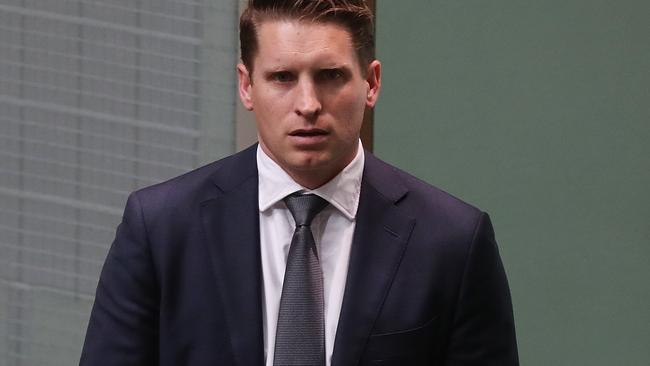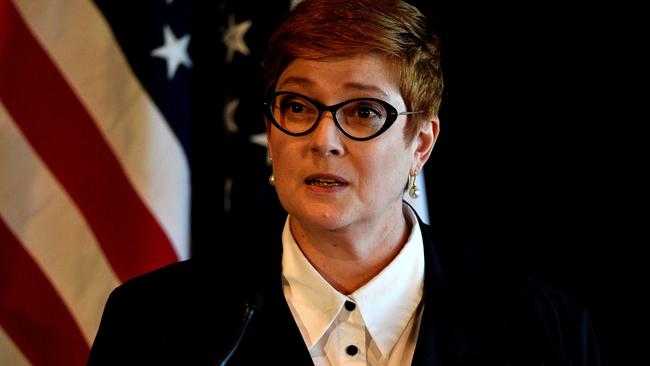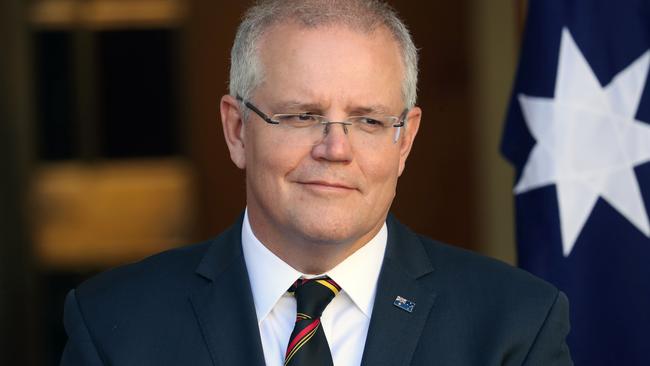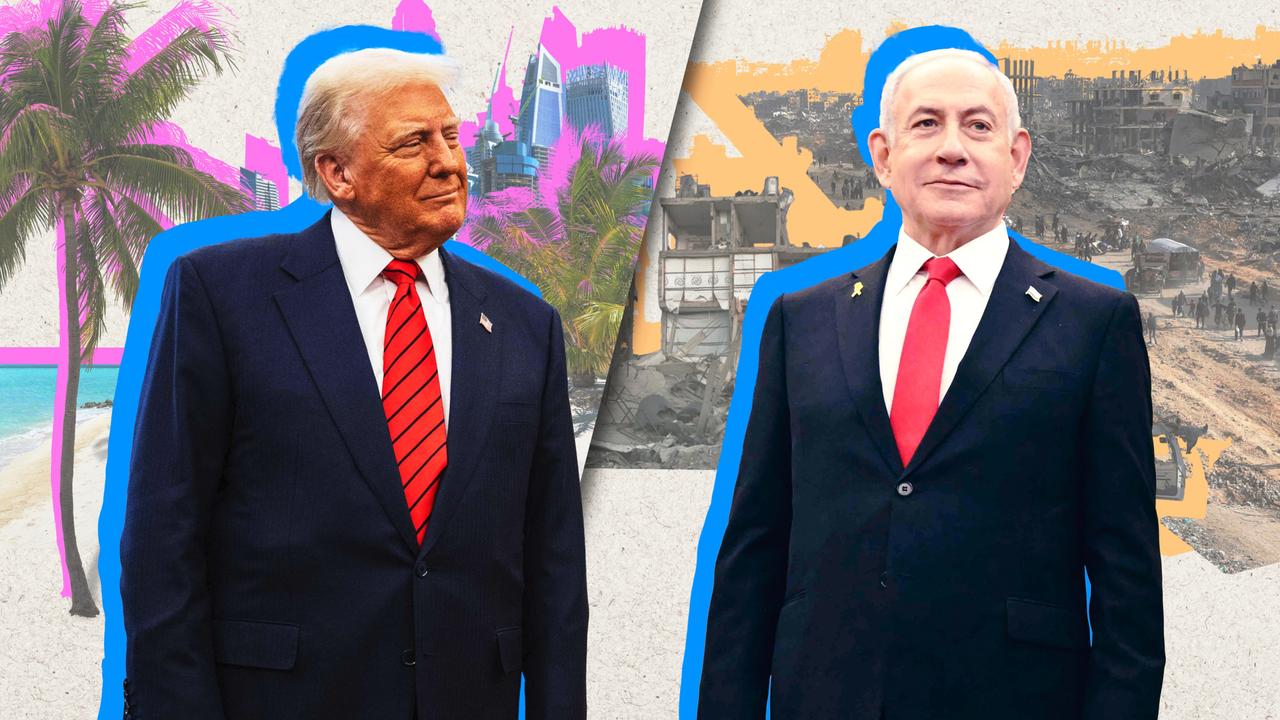Chinese embassy attacks Andrew Hastie warning of its threat to Australia’s freedoms
Foreign Minister says differences shouldn’t define the relationship, amid fallout over Andrew Hastie’s warning.

Foreign Minister Marise Payne has declared Australia should not let differences with China define an “important” relationship, as the Chinese embassy accuses Liberal MP Andrew Hastie of adopting a “Cold War mentality” after he warned its rise could place Australia’s sovereignty and freedoms at risk.
The embassy said the comments by Mr Hastie — the chairman of the Parliamentary Joint Committee on Intelligence and Security — were detrimental to China-Australia relations.
Mr Hastie used a column in Nine newspapers to compare the West’s response to China to that of the French against Nazi Germany.
The response by China’s embassy today was swift.
“We strongly deplore the Australian federal MP Andrew Hastie’s rhetoric on ‘China threat’ which lays bare his Cold-War mentality and ideological bias,” the embassy said in a statement.
“History has proven and will continue to prove that China’s peaceful development is an opportunity, not a threat to the world.
“We urge certain Australian politicians to take off their ‘coloured lens’ and view China’s development path in an objective and rational way.
“They should make efforts to promote mutual trust between China and Australia, instead of doing the opposite.”

Like Scott Morrison, Senator Payne would not slap down Mr Hastie for his critique and said an Indo-Pacific that was free, open and prosperous was overwhelmingly in the interest of Australia and its partners in the region.
“There are many opportunities for both Australia and China in our bilateral relationship. It’s an important relationship underpinned by a comprehensive strategic partnership and a free trade agreement, and it benefits both countries,” Senator Payne said.
“But as I’ve said, there are differences from time to time. We should not let our relationship be defined by those differences, rather we will continue to manage the relationship in Australia’s best interests while protecting our sovereignty and adhering to our values.
“As the Prime Minister has said, Mr Hastie is of course entitled to make comments as a member of the backbench.”
Home Affairs Minister Peter Dutton defended Mr Hastie, saying he was one of the most distinguished members of parliament after serving as an SAS captain and chairing the PJCIS.
“Andrew Hastie is somebody who has served with great distinction and will continue to do that and (it is) his right and his role as a backbencher to raise issues that are of concern to him,” Mr Dutton said.
While he refused to comment on Mr Hastie’s opinion piece, Mr Dutton said Australia must ensure all of its partners respected its sovereignty.
“We want to make sure that whether it’s in the area of trade negotiations, the allegations of theft of IP or our university campuses, we ensure our sovereignty as any nation does. We’ll continue to work with countries so people understand the boundaries,” he said.
“We have a very strong relationship, obviously a very strong trading relationship with China. We want to see China grow, we want to see China succeed, we want to see more people come out of poverty into the middle class, to be part of a growing China. We’ve been very clear about that.”

PM plays down MP’s warning
Scott Morrison today distanced his government from Mr Hastie’s warning.
The Prime Minister did not reject Mr Hastie’s critique, saying the issues and challenges he had raised were not new.
But Mr Morrison pointed out his colleague, who also chairs the parliamentary joint standing committee on intelligence and security, was “of course not a minister” and free to say what he wanted as a backbench MP.
Mr Hastie labelled the West’s belief that economic liberalisation would lead to China’s democratisation as “our Maginot line” — in reference to the concrete fortifications built by the French during World War II in an attempt to stop Germany from invading.
“It (the belief China would be democratised) would keep us safe, just as the French believed their series of steel and concrete forts would guard them against the German advance in 1940. But their thinking failed catastrophically,” Mr Hastie wrote.
“The French had failed to appreciate the evolution of mobile warfare. Like the French, Australia has failed to see how mobile our authoritarian neighbour has become.
“Even worse, we ignore the role that ideology plays in China’s actions across the Indo-Pacific region. We keep using our own categories to understand its actions, such as its motivations for building ports and roads, rather than those used by the Chinese Communist Party.”
Mr Morrison said Australia would continue to have a “cooperative arrangement” with China and declared there was more to be gained from the relationship, particularly from a trade perspective.
“That relationship is far broader than just the economic one,” Mr Morrison said.
“Equally our relationship with the United States is a very special one indeed and there’s a deep connection on values and that’s of no surprise to anyone.
“We believe we can continue to manage these relationships together but I don’t think anyone is in any way unaware of the challenges that present there and I say to that end, I don’t think it’s really offering anything new.”
Mr Hastie said Australia must be clear-eyed about its position in the world as it balanced security and trade interests.
“We are resetting the terms of engagement with China to preserve our sovereignty, security and democratic convictions, as we also reap the benefits of prosperity that come with our mutually beneficial trade relationship,” he said.
“Right now our greatest vulnerability lies not in our infrastructure, but in our thinking. That intellectual failure makes us institutionally weak. If we don’t understand the challenge ahead for our civil society, in our parliaments, in our universities, in our private enterprises, in our charities — our little platoons — then choices will be made for us. Our sovereignty, our freedoms, will be diminished.
“Most importantly, we must remain true to our democratic convictions while also seeing the world as it is, not as we wish it to be.”
China relationship ‘critical’
Opposition foreign affairs spokeswoman Penny Wong condemned Mr Morrison’s handling of Mr Hastie’s comments and called on him to show leadership.
Senator Wong said the Prime Minister must ensure the government was taking a “disciplined and consistent approach to the management of Australia’s relationship with China” rather than “pandering” to his backbench.
“It is not enough to downplay Mr Hastie as a backbencher who is entitled to his views. The China relationship is a critical relationship for Australia – it is both complex and consequential,” she said.
“This government has a history of its members making ill-advised and unnecessarily inflammatory statements. This is far too important to our national interest.”



